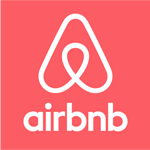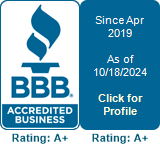As a short-term rental management company, we’re often asked which online rental platform is best. Well, that depends on your particular property and hosting situation.
If you are renting individual rooms in a hosted property, Airbnb is your best option as a primary rental platform. If you are renting out your entire house un-hosted, both Airbnb and Vrbo are good options. But are they both the same? There are key differences between the two top online rental platforms.
The Airbnb fee for hosts is 3% of the booking subtotal and potentially higher for Airbnb Plus hosts.
With Vrbo, property owners can choose to advertise with a flat annual fee or through a pay-per-rental commission. The yearly fee of $499 allows unlimited bookings, whereas the commission-based structure charges 5% per rental plus a 3% credit card processing fee.
With hundreds, if not thousands, of properties available in some areas, it’s vital to get your property to rank as high up the list as possible in the search results. Both websites consider a combination of factors — some of which are within your control and some that are not.
Ensuring that your listing has a detailed description and lots of good quality photos will help drive booking requests, and the higher the conversion rate on your listing, the better your search ranking can be. Airbnb and Vrbo both consider factors such as allowing Instant Book on your property, how quickly you respond to inquiries, and whether you’ve had no or a low number of rejected or canceled bookings.
Airbnb rewards its hosts with Superhost status when they have kept their accounts in good standing. The Superhost profile badge features on the property listing and reassures guests that you’re a reliable host.
It’s simple to register your property on Airbnb. They guide you through a step-by-step process, including selecting your property’s facilities, uploading photos, and defining the rental rules for your guests.
If you’re signing up to Vrbo and listing on another travel site such as Airbnb, you need to call the listing team to get started. However, if you’re not listed elsewhere, you can set up your listing online, and the process is as simple as Airbnb.
Whether you allow Instant Book or not, it’s essential to keep your booking calendar updated so that guests can check availability and avoid double booking.
With Airbnb and Vrbo, you can sync your calendar with other rental sites to ensure you don’t have to reject or cancel a booking, which can lead to host penalties. Airbnb also enables you to sync calendars between multiple listings, for example, if you rent an entire place and the rooms separately.
With Airbnb, you can activate Smart Pricing that automatically adjusts your nightly rate in response to demand. Rates can be affected by seasonality, local events, and midweek vs. weekend dates, and Airbnb will increase or decrease your rates to attract more guests.
For hosting, there’s little difference between Airbnb and Vrbo with the online experience of listing your property. Both offer intuitive admin areas and provide tips and guidance for suggested nightly rates based on the property’s location and facilities. The Airbnb Superhost status can add credibility to a host profile and work towards ensuring best practices. If the commission is the deciding factor, Airbnb will be a host’s top choice charging a flat 3% compared to Vrbo’s pay as you go 5% plus the 3% credit card processing fee.
So, which is the most appropriate platform for you? That depends on your circumstances. If you’re looking for a budget option of renting a room within your home, Airbnb is the website for you as VRBO only offers entire properties. On the other hand, if you are looking for accommodation that is out of the ordinary, Airbnb makes it easier to find these hidden gems with a filter specifically for unique stays.
From a usability point of view, Airbnb has the edge on Vrbo, as they’ve considered small touches that allow you to select properties that offer greater reassurances in host reliability. For example, Superhost status and timeframes showing a host’s typical response rate can indicate how dedicated a host maintains its listing.
When choosing which website to use, it’s likely going to come down to commission, as you’re renting your place to make money. Airbnb’s 3% is less than Vrbo’s 5%, but if your property is a full-time rental, you might want to consider Vrbo’s annual subscription that allows unlimited bookings for a fee.




